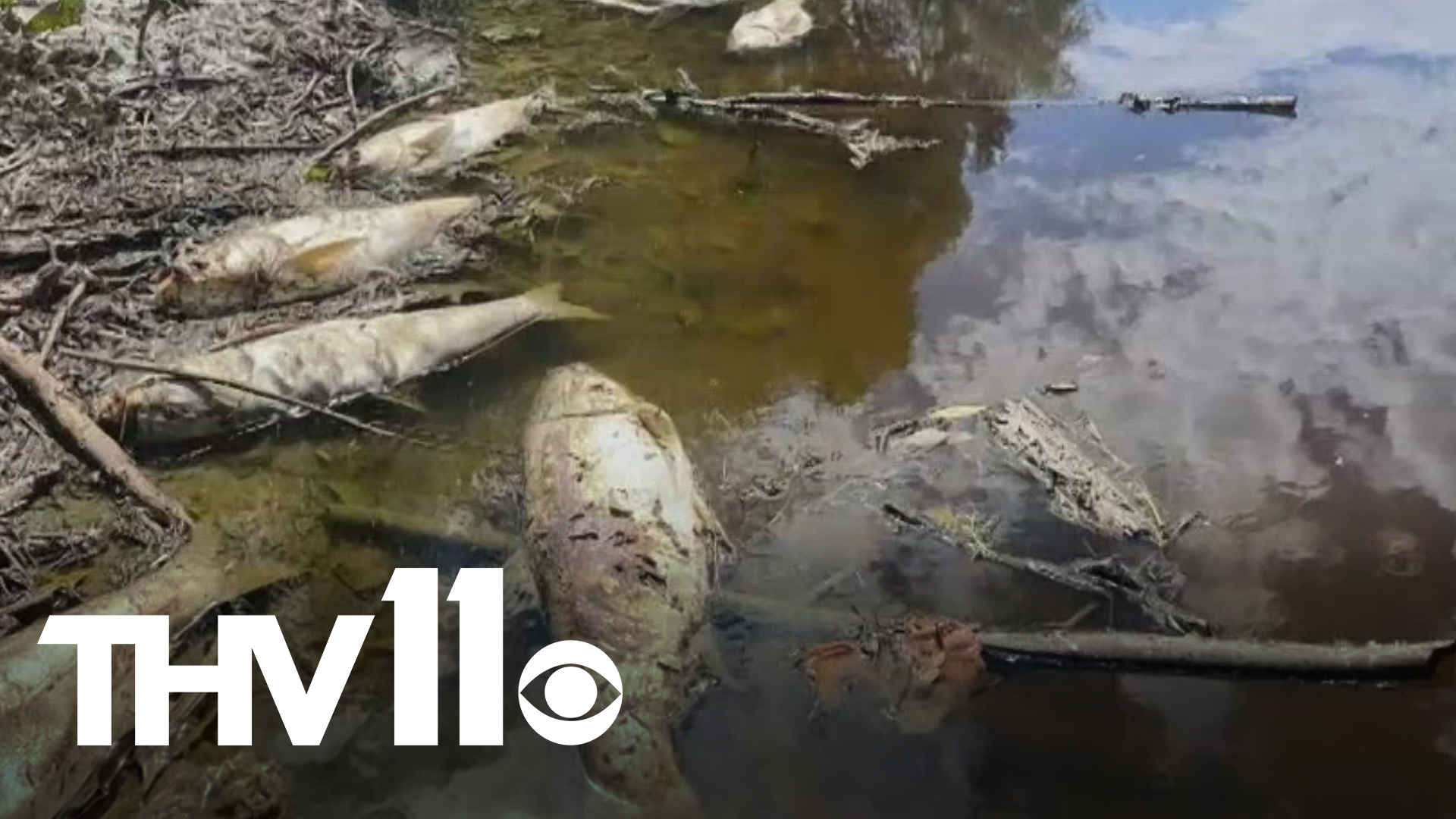ST. FRANCIS COUNTY, Ark. — Seeing a dead fish or two while on the lake is not a huge shock, but how about thousands?
Some people are facing that situation in east Arkansas, with Blackfish Bayou in St. Francis County, one of multiple bodies of water, seeing large numbers of fish belly-up.
"The smell... I don't know how to describe it," St. Francis County resident David Stanley said. "It makes you not even think about food... just inhaling it is unhealthy."
Arkansas Game and Fish Commission (AGFC) fisheries supervisor for the area, Justin Homan, blames Hurricane Francine.
Homan said the area between Memphis and Jonesboro received seven to eight inches of rain when Francine's remnants came through Arkansas, which carried plants, leaves and other vegetation into the water.
"It starts to decompose,” Homan said. “The process of that vegetation decomposing… it needs oxygen, so it uses the dissolved oxygen that's in the water, and so there's less available for fish, and the fish die because they don't have enough oxygen to breathe.”
While the smell can be overwhelming, AGFC District Fisheries Coordinator Matt Schroeder said there's no real danger to people.
Unfortunately, Schroeder also said there’s not much AGFC—or anyone—can do about the situation besides letting nature run its course.
"Arkansas Game and Fish is responsible for documenting fish kills,” Schroeder said. “Beyond that, we don't necessarily do a lot of cleanup."
As the fish decompose, sink, or are eaten by scavengers, many across the state will be watching to see if the situation repeats itself as Hurricane Helene is expected to make landfall late Thursday or early Friday morning.
"It could happen,” Schroeder said. “Late summer, hurricanes can make it happen, for sure. We see fish kills and turnovers yearly on bodies of water."
Homan agreed, but said he's a little more hopeful this time around for a number of reasons.
"In the areas where it's already occurred, most of the vegetation is gone,” Homan said. “I'm hoping there's not as much vegetation on the ground to get flushed out into the water."
Additionally, Homan said the temperature drop should help as it reduces the oxygen demand in the water.
AGFC said in a post that if any further fish kills are spotted in eastern Arkansas, they should be reported to the AGFC’s Brinkley Regional Office at 833-345-0823.
“We always want to make sure, is this natural causes? What's going on?” Homan said. “Oxygen is usually our first suspect, and so don't be afraid to call if you see something, and we'll do our best to investigate it and figure out what's going on.”
An AGFC representative told us that if there is one positive with the situation, many fish dying are silver carp, an invasive species.

